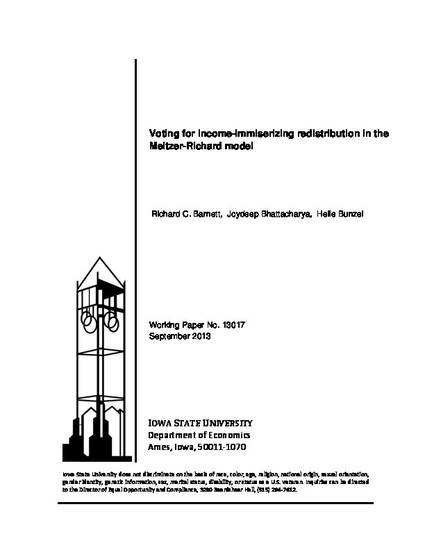
Article
Voting for income-immiserizing redistribution in the Meltzer-Richard model
Economic Inquiry
Document Type
Article
Disciplines
Publication Version
Submitted Manuscript
Publication Date
1-1-2014
DOI
10.1111/ecin.12059
Abstract
This paper argues that income received via redistributive transfers, unlike labor income, requires no direct sacrifice of leisure; this makes it attractive to many voters even if it leaves them poorer. This point is made within the classic Meltzer and Richard (1981) model wherein heterogeneous voters evaluate an income-redistribution program that finances a lump-sum transfer to all via a distorting income tax. The political-equilibrium policy under majority rule is the tax most preferred, utility-wise, by the median voter. Ironically, this voter, and many poorer voters, may support a redistribution policy that leaves them poorer in income terms but with higher utility.
Citation Information
Richard C. Barnett, Joydeep Bhattacharya and Helle Bunzel. "Voting for income-immiserizing redistribution in the Meltzer-Richard model" Economic Inquiry Vol. 52 Iss. 2 (2014) p. 682 - 695 Available at: http://works.bepress.com/joydeep_bhattacharya/36/

This is a working paper of an article published in in Economic Inquiry, Vol. 52 iss. 2 (April 2014): 682, doi: 10.1111/ecin.12059